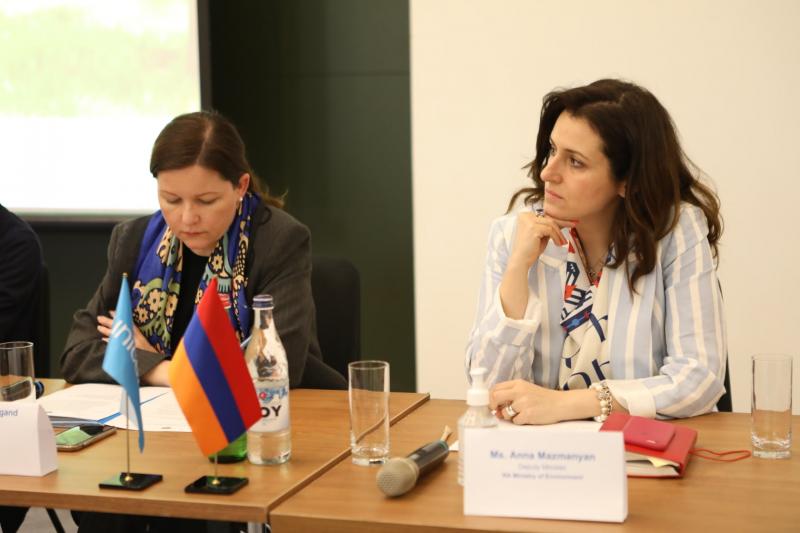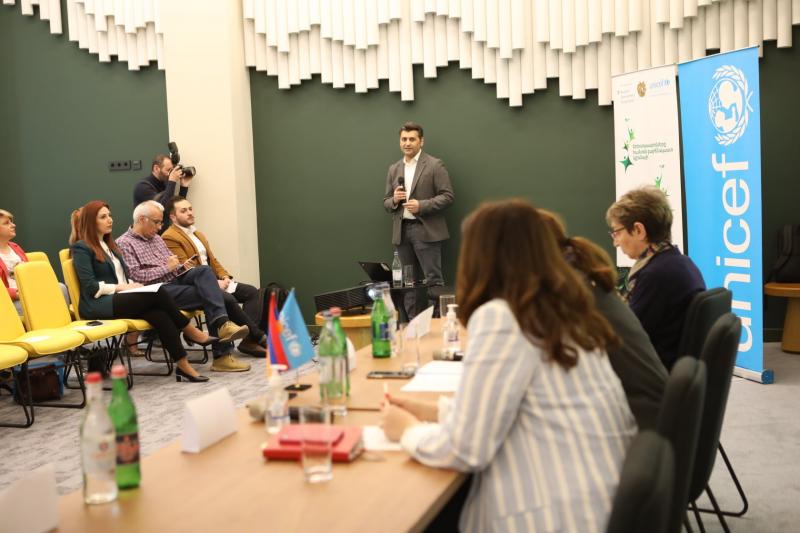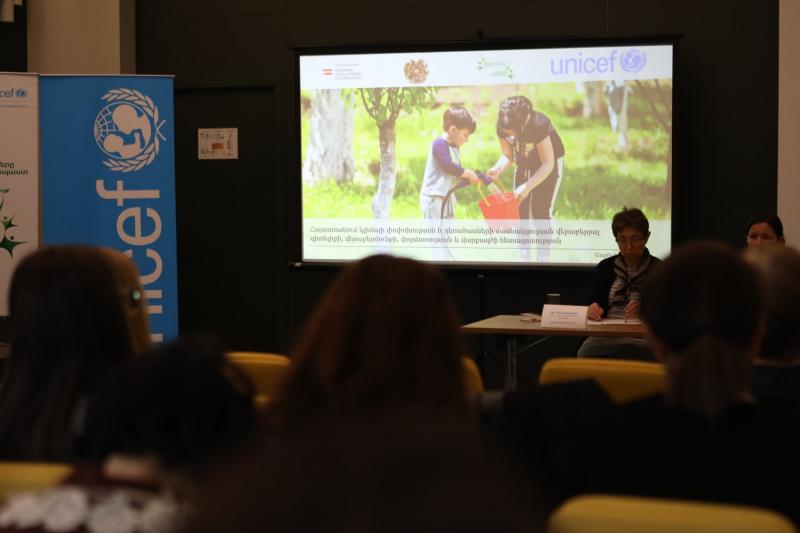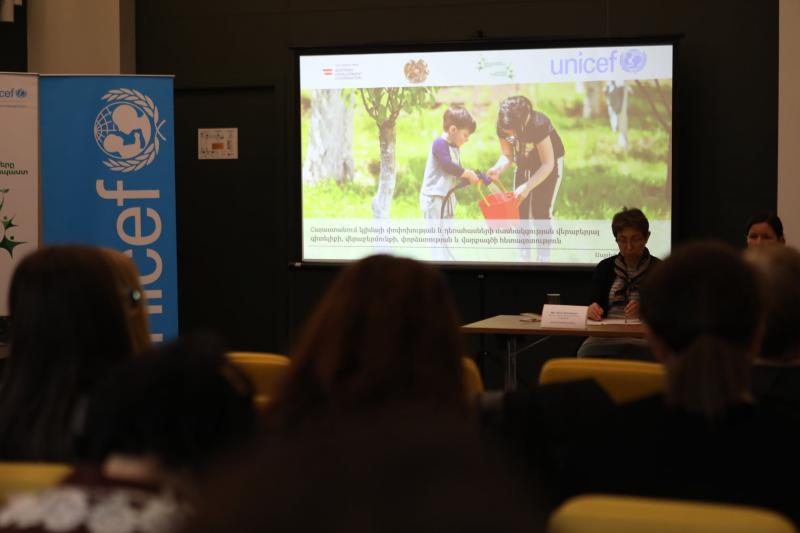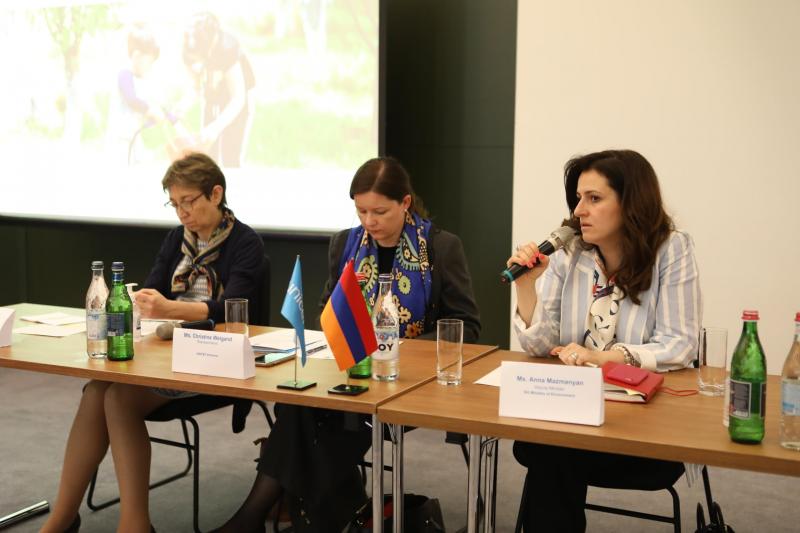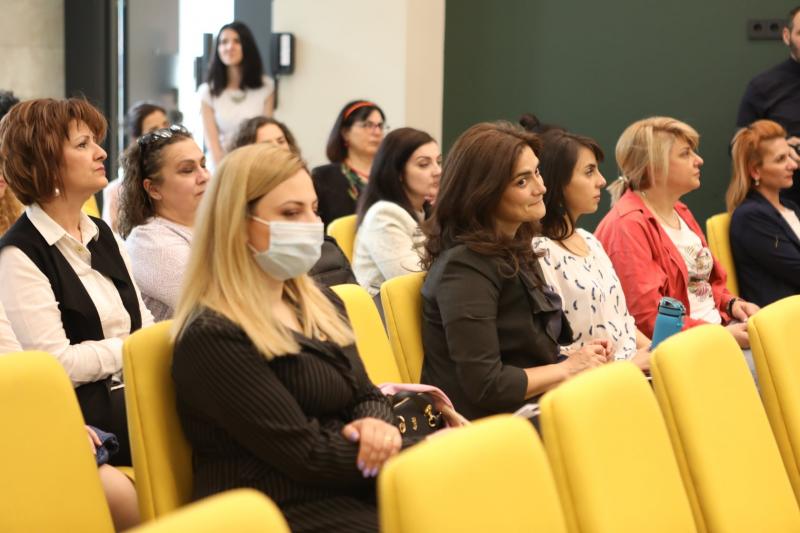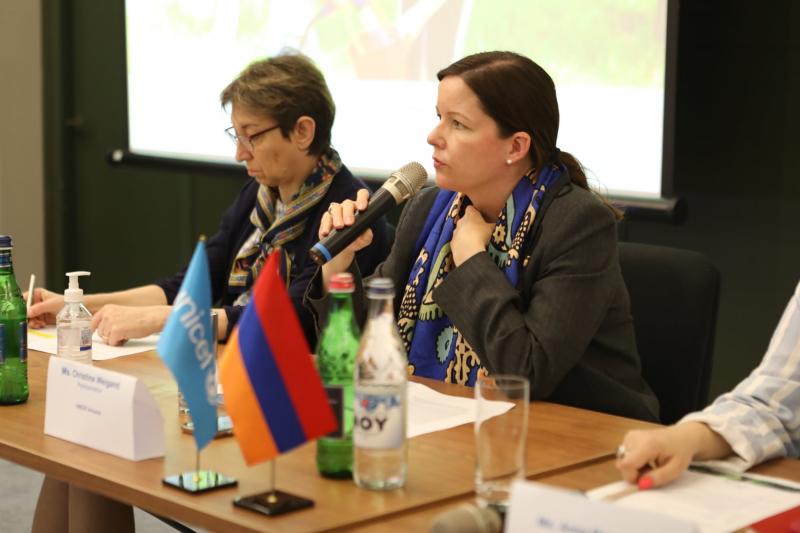On the occasion of Earth Day, UNICEF and the Austrian Development Agency, in cooperation with the Ministries of Environment and Education, Science, Culture and Sports of the Republic of Armenia, published for the first time a study of the knowledge, attitudes, experiences and behavior of adolescents in 52 enlarged communities of Armenia.
Focusing on both adolescents and adults, the study aims to find out their perception of what climate change is and how it affects their communities, their attitude to climate change and environmental problems, as well as their willingness to participate in climate change mitigation and environmental activism:
In The event was also attended by Deputy Minister of Environment Anna Mazmanyan.
Deputy Minister Anna Mazmanyan thanked for the invitation and stressed the importance of the fact that the event is being held on a very significant day for the environment - the International Day of Planet Earth.
In his speech, the Deputy Minister once again thanked for the work that UNICEF is doing in Armenia.
"If you want to have a prosperous country, first you need to stimulate the environmental education of children and youth. Their attitude to nature is formed in the educational environment, and this can be a platform on which the younger generation will form an attitude to nature, ecology. The Ministry of Environment is working to be very active in shaping the ecological environment. in order to increase the level of environmental education, the Ministry often organizes visits of schoolchildren to the Ministry, museums and specially protected natural areas," the Deputy Minister said.
"Research clearly points to climate change and the vital importance of education for solving environmental problems, both formal and informal - According to UNICEF representative in Armenia Kristine Vaigand, this study complements the view that governments should invest in climate education and include climate change education in curricula, combining it with opportunities provided to children to participate in environmental activities and projects."
The study was conducted by self-conducted web interviews among 1,517 students in grades 6-12 of 483 schools, including 45 students in need of special education, as well as in-person interviews among 710 adults in 52 large communities.
Data collection among adolescents was provided jointly with the National Center for Educational Technologies.
UNICEF, with the support of the Austrian Development Agency, will continue to support the Ministry of Education, Science, Culture and Sports, as well as the Ministries of Environment, Territorial Administration and Infrastructure and other partners to include climate change education in the national curriculum, develop training modules for teachers and support the development of their abilities, as well as to create opportunities and platforms for teenagers to have their voice heard, The Ministry of Environment is ready to contribute to the implementation of all these programs.


